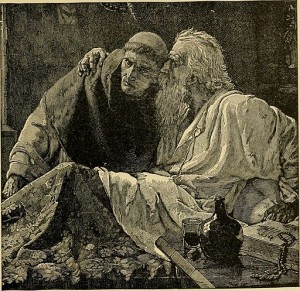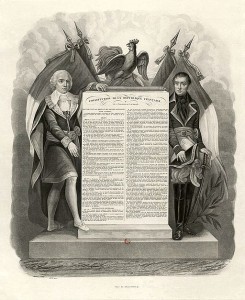![By U.S. Geological Survey [CC BY 2.0 (http://creativecommons.org/licenses/by/2.0)], via Wikimedia Commons](https://blog.nus.edu.sg/singaporesling/files/2015/10/An_orang-utan_with_a_paper_bag_on_its_head-1-19ooxpg-300x200.jpg) Recently, I had the privilege of attending an Ethical Review of Biomedical Research short course at the National University of Singapore. It was a brutal four days of discussing difficult case studies that Institutional Review Boards face regularly when reviewing the ethical grounds for biomedical scientific research. It brought up many interesting themes for me, mainly about privacy and confidentiality that have come up as hot topics in recent years in biomedical research, as well as in the general discourse about drones and whatnot. In this first of a series of blog posts on privacy and confidentiality, I wanted to explore how the concept of privacy even came about, how it’s defined, where it has been discussed in the current discourses, and what history has taught us about privacy.
Recently, I had the privilege of attending an Ethical Review of Biomedical Research short course at the National University of Singapore. It was a brutal four days of discussing difficult case studies that Institutional Review Boards face regularly when reviewing the ethical grounds for biomedical scientific research. It brought up many interesting themes for me, mainly about privacy and confidentiality that have come up as hot topics in recent years in biomedical research, as well as in the general discourse about drones and whatnot. In this first of a series of blog posts on privacy and confidentiality, I wanted to explore how the concept of privacy even came about, how it’s defined, where it has been discussed in the current discourses, and what history has taught us about privacy.
In the ‘Privacy and Confidentiality’ issue of Current Issues in Research Ethics, privacy is defined as “a person having control over the extent, timing, and circumstances of sharing oneself (physically, behaviorally, or intellectually) with others. Privacy refers to the right of individuals to limit access by others to aspects of their person – that can include thoughts, identifying information, and even information contained in bodily tissues and fluids.” When I see a definition of something like this, several questions come to mind. What does it mean to limit access by others to aspects of their person? Are we saying that it is ok to selectively skew and portray our image and information to others according to our liking? What do we mean when we talk about control over the extent, timing, and circumstances? Are we ever in control of these things in our daily lives? What is it about privacy that makes it innately acceptable to demand it as a right? On the flip side, if people wanted to express themselves wholeheartedly, should there be any boundaries, and if any to stop them from sharing it with the rest of the world? Where does the notion of privacy even come from? And why has it become such a big deal?
![Albrecht Dürer [Public domain], via Wikimedia Commons](https://blog.nus.edu.sg/singaporesling/files/2015/10/Albrecht_Dürer_Adam_and_Eve_1504_Engraving-1j6knny-236x300.jpg)
In his TED talk on What will a future without secrets look like? Alessandro Acquisti, from Carnegie Mellon, talks about the notion of privacy datingback to “the notorious privacy incident involving Adam and Eve, and the remarkable shift in the boundaries between public and private which has occurred in the past 10 years.” He goes on to say, “Adam and Even one day in the Garden of Eden realize they are naked. They freak out. And the rest is history […] The story of the Garden of Eden [,] which doesn’t have to do with the issue of Adam and Eve feeling naked and feeling ashamed. You can find echoes of this interpretation in John Milton’s “Paradise Lost.” In the garden, Adam and Eve are materially content. They’re happy. They are satisfied. However, they also lack knowledge and self-awareness. The moment they eat the aptly named fruit of knowledge, that’s when they discover themselves. They become aware. They achieve autonomy. The price to pay, however, is leaving the garden. So privacy, in a way, is both the means and the price to pay for freedom.”
It somehow makes more sense that privacy has become such a big deal, because it seems that it has to do with not only our rights as individuals, but also our freedom, two things that are inseparable with individuals’ identity in the West. However, it is not just the West that is concerned about privacy. Religion is as well.
The Global Internet Liberty Campaign, an international survey of privacy laws and practice, briefly mentions the different religions that talk about privacy, “The Bible has numerous references to privacy. There was also substantive protection of privacy in early Hebrew culture, Classical Greece and ancient China. These protections mostly focused on the right to solitude. Definitions of privacy vary widely according to context and environment. In many countries, the concept has been fused with Data Protection, which interprets privacy in terms of management of personal information. Outside this rather strict context, privacy protection is frequently seen as a way of drawing the line at how far society can intrude into a person’s affairs.”
Data protection seems to be one of the current contexts in which we frequently face privacy issues today. Why does it appear here in the modern age? What is it about data that makes us want to hide it away? Isn’t it just a bunch of numbers that provides a numeric value that we have assigned a metric for? Does it really have that much power? If there really isn’t anything to hide, would you worry about someone intruding into your life? Does one have to have something to hide for it to be a legitimate concern? Is it ok for people to simply want to keep information about themselves private, even if they have nothing to hide or even if that information is hurtful to others? If so, then why? If not, then why not? To dive any further, perhaps we would need to go back in time to see where we messed up in the discourse in privacy, for it to become something as concrete as law in our society.
 The intrusion into a person’s affairs is where the first account of the law of privacy can be traced back to in 1361, when “the Justices of the Peace Act in England provided for the arrest of peeping toms and eavesdroppers. In 1765, British Lord Camden, striking down a warrant to enter a house and seize papers wrote, “We can safely say there is no law in this country to justify the defendants in what they have done; if there was, it would destroy all the comforts of society, for papers are often the dearest property any man can have.” Parliamentarian William Pitt wrote, “The poorest man may in his cottage bid defiance to all the force of the Crown. It may be frail; its roof may shake; the wind may blow through it; the storms may enter; the rain may enter — but the King of England cannot enter; all his forces dare not cross the threshold of the ruined tenement.” What is the current practice of people with power? Do they respect freedom? Do they respect privacy? How do they deprive people of it and what are the consequences?
The intrusion into a person’s affairs is where the first account of the law of privacy can be traced back to in 1361, when “the Justices of the Peace Act in England provided for the arrest of peeping toms and eavesdroppers. In 1765, British Lord Camden, striking down a warrant to enter a house and seize papers wrote, “We can safely say there is no law in this country to justify the defendants in what they have done; if there was, it would destroy all the comforts of society, for papers are often the dearest property any man can have.” Parliamentarian William Pitt wrote, “The poorest man may in his cottage bid defiance to all the force of the Crown. It may be frail; its roof may shake; the wind may blow through it; the storms may enter; the rain may enter — but the King of England cannot enter; all his forces dare not cross the threshold of the ruined tenement.” What is the current practice of people with power? Do they respect freedom? Do they respect privacy? How do they deprive people of it and what are the consequences?
 Although the law of privacy can be traced back as far as the 14th century, it wasn’t formally a constitutional law in the United States until about 50 years ago, “The right to privacy is the time-travel paradox of constitutional law: even though it didn’t exist as a constitutional doctrine until 1961, and didn’t form the basis of a Supreme Court ruling until 1965, it is in some respects the oldest constitutional right. It is the right to privacy that forms the common foundation of the freedom of conscience outlined in the First Amendment, the right to be secure in one’s person outlined in the Fourth Amendment, and the right to refuse self-incrimination outlined in the Fifth Amendment – despite the fact that the word “privacy” itself appears nowhere in the U.S. Constitution.”
Although the law of privacy can be traced back as far as the 14th century, it wasn’t formally a constitutional law in the United States until about 50 years ago, “The right to privacy is the time-travel paradox of constitutional law: even though it didn’t exist as a constitutional doctrine until 1961, and didn’t form the basis of a Supreme Court ruling until 1965, it is in some respects the oldest constitutional right. It is the right to privacy that forms the common foundation of the freedom of conscience outlined in the First Amendment, the right to be secure in one’s person outlined in the Fourth Amendment, and the right to refuse self-incrimination outlined in the Fifth Amendment – despite the fact that the word “privacy” itself appears nowhere in the U.S. Constitution.”
Now that we have glimpsed a brief history of privacy, what are the conversations that we are having in 2015 about privacy? What are the worries that people have in the world of technologies? How does the theme of privacy come up in biomedical research? What is it about biomedical research that poses inherent threats to an individual’s privacy even when personal information is not used?
These are themes that will be explored in another blog post. Until then 🙂
by Nahal Haghbin
(Images via Wikimedia Commons)